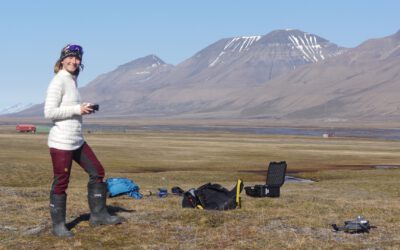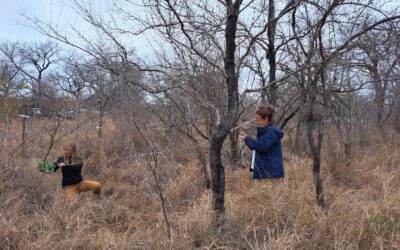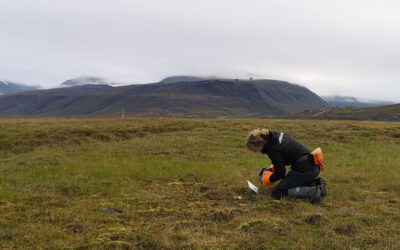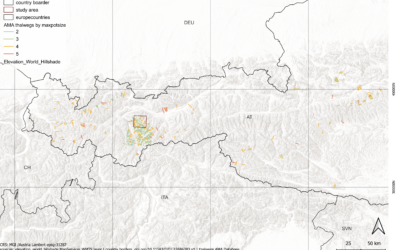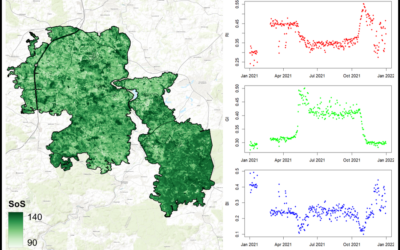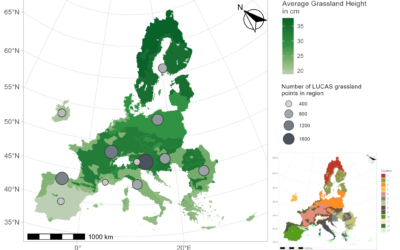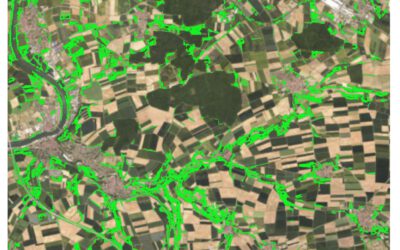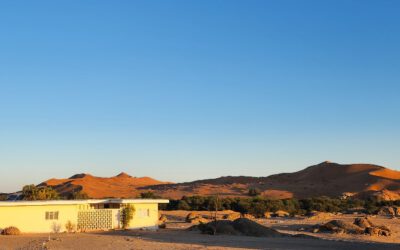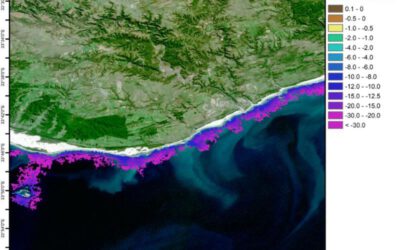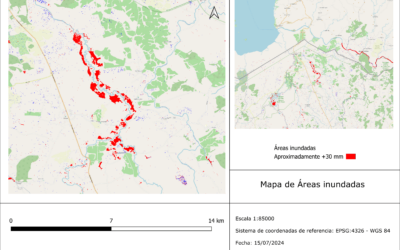Aim
The module addresses methods on how Earth Observation and the use of geoinformation can support different fields of land and water management. The students will be guided to gain knowledge in selected practical examples.
Content
A general introduction on the subject, which strongly integrates large fields of environmental sciences and studies, is given. The students select topics in which remote sensing and geoinformation can significantly contribute parameters for answering relevant management questions. The topics include the derivation and use of parameters for monitoring land and/or water resources and examples how they can actually implemented in analytical or predictive models, or in indicator systems. The examples may include the management of the resources in rangelands, croplands, irrigation and drainage systems, river catchments, urban areas, or others. Focus may be set on special geographical settings. Depending on the selected topics and scale relevant Earth Observation parameters can include land cover and land use mapping, biophysical variables (LAI/FPAR/Chlorophyll, evapotranspiration , etc.), biomass or crop yields, soil moisture, phenological metrics and other dynamic parameters.
Coding
Software
Techniques
Content
General Course News and Updates
EAGLE M.Sc. thesis in the Arctic
Our EAGLE student Ronja Seitz is conducting her field work for her Master thesis in the Arctic, on Svalbard. She started collecting her data in June to build up a timeseries with UAS multispectral data to investigate disturbances like rain on snow (ROS) events and...
Our Earth Observation students doing their internship with SANparks, South Africa
Our EAGLE M.Sc. students Marlene Bauer and Anna Bischof are currently doing their internship at SANparks, in the Kruger National Park, South Africa. After some intense months of preparation guided by their EORC supervisor Dr. Mirjana Bevanda and supported by the PhD...
Our EAGLE Clara is doing her internship in the Arctic
Clara, an 8th gen EAGLE, is currently doing her internship in the Arctic. She spends 2 months in Longyearbyen on Svalbard where she works with colleagues from UNIS who are already collaborating with our EORC scientists, namely Dr. Bevanda. Clara works at the Arctic...
Master Defense: Towards a quantitative terrain-based avalanche size classification: a case study based on Avalanche Modelling Atlas Thalweg data
On September 18, Magdalena Fischer will present her master thesis " Towards a quantitative terrain-based avalanche size classification: a case study based on Avalanche Modelling Atlas Thalweg data" at 13:00 in seminar room 3, John-Skilton-Str. 4a. From the...
Master Defense: Comparing the suitability of remote sensing and wildlife camera time series for deriving phenological metrics of understory vegetation in temperate forests of Upper Franconia, Bavaria
On September 18, Sarah Schneider will present her master thesis "Comparing the suitability of remote sensing and wildlife camera time series for deriving phenological metrics of understory vegetation in temperate forests of Upper Franconia, Bavaria" at 14:00 in...
Master Defense: Regionalisation and Characterisation of Grasslands in the EU based on Remote Sensing Data
On September 17, Daniel Gruschwitz will present his master thesis " Detection of hedgerows and copses in the agricultural landscape of Lower Franconia (Germany) using earth observation data" at 13:30 in seminar room 3, John-Skilton-Str. 4a. From the abstract: In the...
Master Defense: Detection of hedgerows and copses in the agricultural landscape of Lower Franconia (Germany) using earth observation data
On September 17, Verena Stegmaier will presenter her master thesis " Detection of hedgerows and copses in the agricultural landscape of Lower Franconia (Germany) using earth observation data" at 12:30 in seminar room 3, John-Skilton-Str. 4a. From the abstract:...
Cooperation with Namib desert Research Institute Gobabeb
The Namib desert research station Gobabeb (www.gobabeb.org) is involved in diverse research projects and is hosting various students and researchers from a wide range of backgrounds and nationalities. They are also already involved in remote sensing and very...
Innolab Presentation: Enhancing Satellite Data Processing for Global Shallow Water Bathymetry at EOMAP
On September 10, 2024, Isabella Metz will present her Inno Lab results on " Enhancing Satellite Data Processing for Global Shallow Water Bathymetry at EOMAP" at 12:00 in seminar room 3, John-Skilton-Str. 4a. From the abstract: About 75% of the oceans have not yet been...
Internship Presentation: Application of synthetic aperture radar (SAR) data: Case study in flood mapping in Costa Rica and technical capacity building of the PRIAS team
On October 01, 2024, Ariana Sofía Argüello Cordero will present her internship " Application of synthetic aperture radar (SAR) data: Case study in flood mapping in Costa Rica and technical capacity building of the PRIAS team" at 12:00 in seminar room 3,...

